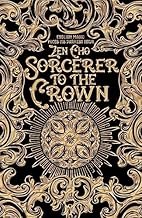
Karin Tidbeck is the
award-winning author of Jagannath: Stories and the novel Amatka. She
lives and works in Malmö, Sweden, where she makes a living as a freelance
writer. She writes in Swedish and English, and has published work
in Weird Tales, Tor.com,
Words Without Borders anthologies like Fearsome Magics and The
Time-Traveler's Almanac.
For
anyone who is still unfamiliar with your work (living under a rock obviously)
how would you describe it? Where’s the best place to find it?
Well, as Johanna Sinisalo and I established at Archipelacon
this summer, I probably write Nordic Weird ... most of the time. I like to play
around with reality. The best place to go is probably the bibliography on my
website, where you can find links to all my published fiction and where to buy
or read it.
We,
being English, are most familiar with your short stories – can you tell us a
bit about Amatka – is there any translation planned?

Amatka is a novel about the power of language over reality.
A group of people have colonized another world, where matter reacts to
language. I wanted to explore how conditions like those would shape a society,
modes of thought, and what would happen if one upsets the order of things.
There is a translation, and it's resting with my agent at the moment.
You
are a keen LARPer how do you think that influences your writing? (We're so
jealous of the LARP scene in Scandinavia!)
Nordic LARP is an excellent way to practice improvisation
and reaching beyond your normal limits - I consider it brain cardio. I went to
a Jungian LARP staged in a black box theatre last weekend; it was both amazing
fodder for the imagination and gave me a sort of creative slingshot effect. I
usually get a huge creative boost after LARPs like that. Writing for and
organizing LARP also gives you a deeper insight into both worldbuilding and
character creation; I've worked a lot with developing characters for various
games, both avant-garde and commercial, and I think it's made my fiction more
character-driven that it might otherwise be.

You
are working on a new novel, can you share any details to whet our appetites?
It's set in the same world as the stories "Augusta
Prima" and "Aunts", but that's about all I'm willing to share at
the moment (although there's another tidbit below).
You’ve
published on “Where Ghostwords Dwell” what’s the idea
behind that?
The idea is to showcase notes, drafts and other things that
ended up on the cutting room floor during the creation of a story. It's
something readers don't usually get to see, and gives you a great insight into
the creative process.
One
of your short stories – the marvellous Who is Arvid Pekon - has been
adapted to film. How involved in that process were you?
What does it feel like to see your story come to life on screen?

The director is a good friend of mine; we agreed that I
would be very hands-off during the process except for answering questions here
and there. I wanted him to have free rein. It turned out to be a very good
thing, as the film is absolutely brilliant.
If
you could be a character from any of your works who would it be and why?
I don't think I want to -be- any of the characters in my
work. Most of them don't fare very well, do they. Well, maybe one. There's a
librarian in my upcoming novel that I'm quite fond of, and who doesn't die
horribly.
What’s
currently on your “To Read” pile? Who do you think we should all be reading but
aren’t?
On my pile right now is China Miéville's new short story
collection, Annie Dillard's Pilgrim at Tinker Creek and Karin Johannisson's
Melankoliska rum (Melancholy rooms). A writer you should have a look at is Zen
Cho, who is also the guest of honor at next Åcon. Her upcoming novel, Sorcerer
to the Crown, looks very very promising.

What’s
the last thing you wrote and what did you learn about writing whilst writing
it?
The last thing I finished was the second draft of the new
novel, during which I learned to write dialogue in iambic pentameter. That was
hard.
In
one sentence what’s your best piece of advice for new writers?
Don't get stuck trying to write the perfect first sentence;
finish the story and fix it later, for all first drafts are crap.
No comments:
Post a Comment